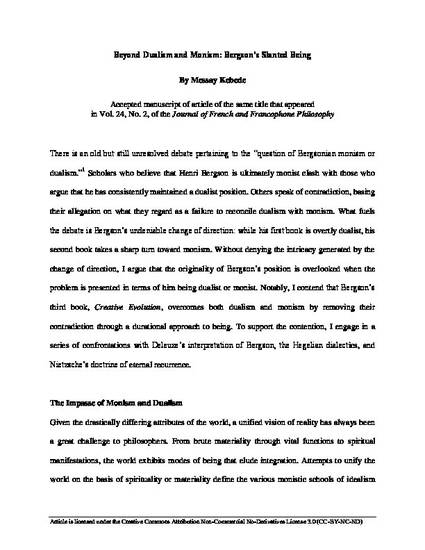
There is an old but still unresolved debate pertaining to the question of Bergsonian monism or dualism. Scholars who think that Bergson is ultimately monist clash with those who claim that he has consistently maintained a dualist position. Others speak of contradiction and point out his failure to reconcile dualism with monism. What feeds on the debate is Bergson’s undeniable change of direction: while his first book is flagrantly dualist, his second book takes a sharp turn toward monism. Without denying the intricacy generated by the change of direction, this paper argues that the originality of his position is overlooked every time that the problem is presented in terms of Bergson being dualist or monist. Notably, it contends that Bergson’s third book, Creative Evolution, overcomes both dualism and monism by removing their contradiction through a durational or slanted approach to being.
- Duration,
- monism,
- dualism,
- Nietzsche,
- Hegel,
- Deleuze
Available at: http://works.bepress.com/messay-kebede/30/

The document available for download is the author's accepted manuscript, provided with the permission of the author in compliance with the publisher's policy on self-archiving. Permission documentation is on file.